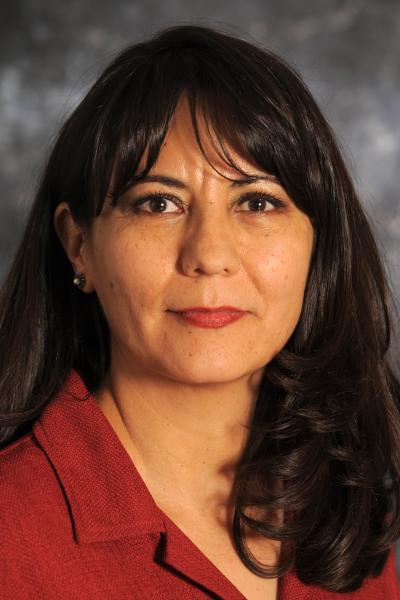NMSU researcher studies ways to provide cleaner water to colonia residents

"Many people in these areas don't have access to treated municipal water," said Rebecca Palacios, an assistant professor in the Department of Public Health Sciences at NMSU. "There is a very high health risk for these people. Some of them dig their own wells, which tend to be shallow and produce contaminated water that isn't sufficiently filtered."
She said water contaminants in the region can originate from agricultural areas, industrial areas or even neighboring septic tanks that were not built to code. These contaminants don't just make water unhealthy for drinking; it can be unhealthy for bathing, too, sometime causing skin rashes and sores. Even boiling the water during cooking won't remove all contaminants.
For the project, she is working with researchers from other disciplines, including civil engineers W. Shane Walker, Ivonne Santiago and John Walton and public health researcher Joe Tomaka, each from UTEP. Their study, titled Point of Use Drinking Water Treatment in the Paso del Norte Region, will evaluate the effectiveness of installing point-of-use water treatment devices, specifically filters, in homes located in the colonias of Southern New Mexico and West Texas.
The study is funded by the U.S. Environmental Protection Agency and is currently in its first phase where the researchers work with local community health workers, known as promotoras, to conduct focus groups to gain a better understanding of the living and water conditions in these communities which in turn will define the scope of the intervention project. Local water samples will also be tested in this phase to determine what kind of filtration devices will provide the best result.
"We are trying to access colonia residents who actually need water filtration," she said. "We are working with our community health partners to try to map where these pockets of people are in the colonias."
Aside from wells, other colonia residents have their water delivered by truck and stored in large tanks outside their homes. The water in those tanks could last the family as long as six months, which makes it susceptible to algae growth, which can clog many traditional filters. In these cases, the water needs to be treated, but many families do not know how frequently they need to treat or prefer not to treat the water because it adds an unpleasant chlorine smell and taste. The researchers are trying to develop solutions for people in this situation as well.
During the study's second phase, point-of-use water filters will be developed and installed in homes at no cost. From there, participants will evaluate the filtration system over the next year and rate it for user friendliness, affordability of maintenance and user satisfaction with end water quality.


